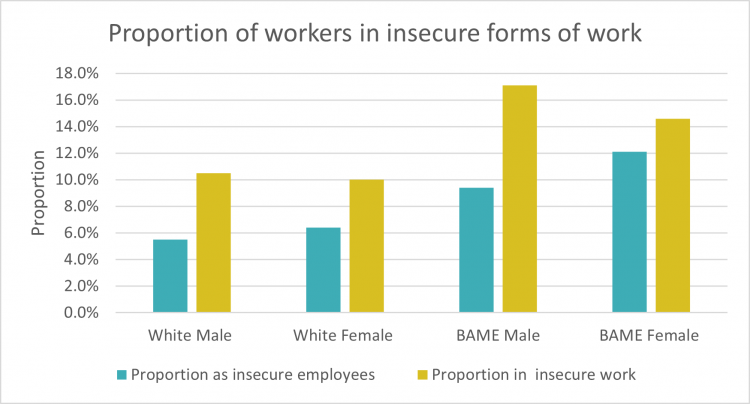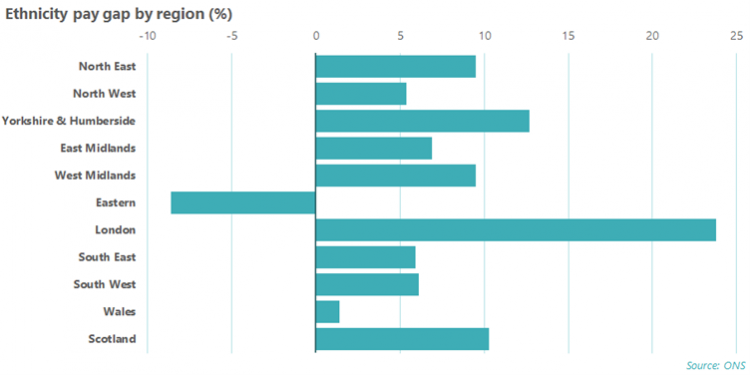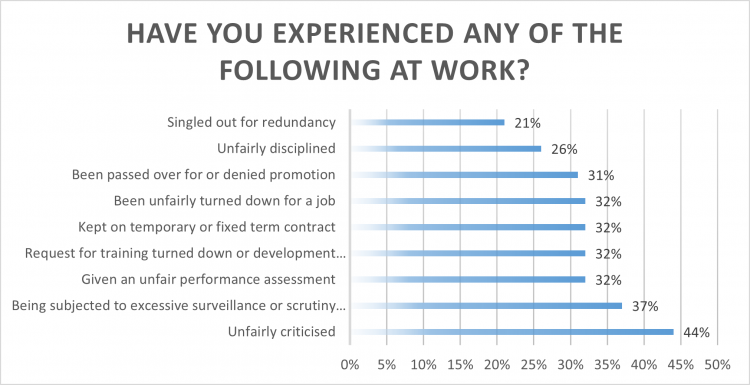BME women trade unionists must be at the forefront of today’s fight for equality
In a world where stereotypes shape so much thinking, BME women workers are too often seen through the distorting lenses of prejudices such as race, sex and class.
The pandemic has had a detrimental impact on BME women at work.
And we know the cumulative impact of discrimination and disadvantage has cost BME women their lives.
Today the TUC has released a report on BME women’s experience at work, and It contains shocking findings.
BME women face inequalities in the labour market
TUC’s analysis of labour market data shows BME women experience systemic, structural inequalities across the labour market.
This means they are overrepresented in lower paid, insecure jobs and at higher risk of being underemployed:
- Insecurity: One in eight BME women are in insecure jobs compared to one in eighteen white men.
- Low pay: Three out of five BME women in self-employment are low paid compared to two out of five white men.
- Underemployment: One in eight BME women are under-employed compared to one in thirteen white men.

Working in insecure jobs means you miss out on basic rights at work such as the right to sick pay, right to paid leave and protection from unfair dismissal.
These protections are crucial, particularly during the crisis, as the issues BME women in insecure work face have been worsened by a lack of adequate rights and protections.
Insecure work also impacts on finances - and not knowing how much you will be paid from week to week can understandably lead to stress and anxiety.
Pay for BME women at work
BME workers are overrepresented in the lowest paid occupations and underrepresented in the highest paid occupations.
TUC analysis of ONS data shows an average ethnicity pay gap of 2.3 per cent.
However, this figure hides significant regional variations. London has the highest ethnicity pay gap at 23.8 per cent.

In addition to analysing labour market data, the TUC surveyed BME women about their lived experience at work.
The results showed BME women face a toxic mix of racism and sexism in the workplace.
Racism and discrimination
-
Unfair treatment: Close to half (45 per cent) of BME women say they have been singled out for harder or unpopular tasks at work compared to their white counterparts
-
Discrimination: Almost one third (31 per cent) of BME women report being unfairly passed over for or denied a promotion at work, this rose to nearly half of disabled BME women (45 per cent)
-
Racism: More than one in three (34 per cent) BME women have experienced racist jokes and so-called banter at work and 30 per cent have experienced verbal abuse.

Conclusion
BME women trade unionists have been at the forefront of the fight for equality and they must be again now.
Today’s briefing highlights the key issues BME women face but deliberately does not make any recommendations.
This is because we want BME women’s voices to lead the debate and shape the demands that we put to government, employers and unions.
To achieve this TUC are organising a virtual event for BME women trade union members, reps and officials to discuss the main themes and findings from our report.
Join us on 18 November and help us fight for BME women’s rights at work.
Stay Updated
Want to hear about our latest news and blogs?
Sign up now to get it straight to your inbox
